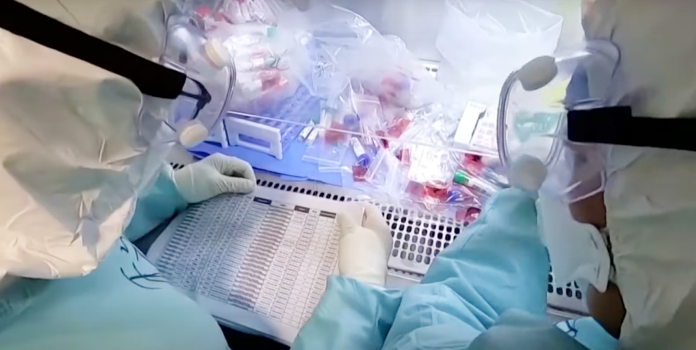(Headline USA) Scientists who have been studying the original COVID-19 and its variants argued that its most recent strain, the omicron variant, was likely developed in a lab as well.
The omicron variant was much more transmissible than the original coronavirus and the delta variant, though its symptoms tended to be much less severe. However, some experts have said that the genetic differences between omicron and the other variants were so noticeable that it could not have developed naturally.
“There was a large number of mutations in this variant—many more than we would expect from the normal evolution of this virus,” said virologist Andrew Pekosz, professor of molecular microbiology and immunology at the Johns Hopkins University Bloomberg School of Public Health, according to Sharyl Attkisson.
Another researcher who works for the U.S. government studying the virus agreed: “It did not follow the trajectory of the outbreak,” he said of omicron.
“One of the hypotheses is that there’s been a cryptic, a completely separate outbreak going on,” the researcher explained. “Perhaps someone immune-compromised was infected, and active replication of the virus was maintained for a very long time.”
Another theory is that omicron was bred in a lab and escaped, just like the original COVID-19 strain.
It is possible “that serial passaging in mice was done in a laboratory somewhere, and add[ed] an accidental or on purpose release on the back end,” a scientist with knowledge of the matter said.
“The short version is that the least likely scenario is that this was a natural human transmission chain that created the lineage and we just failed to detect it,” the scientist said. “The number and makeup of the changes would have required a vast number of infections to support.”
Most experts have downplayed or outright dismissed the theory that COVID-19 escaped from a Chinese research lab. However, as evidence for this theory has grown, a number of scientists have admitted that it is not only a likely theory, but the most likely one.
“I was a lab technician myself, I’m an immunologist, and I have worked in the lab, and lab accidents happen,” World Health Organization Director-General Tedros Adhanom Ghebreyesus said. “It’s common.”

